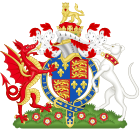Jane Statham facts for kids
Jane Statham (born around 1450-1455 – died after 1537) was an important English woman who helped change the law. She was an heiress, meaning she would inherit a lot of property. After a difficult experience, she asked the government for help, which led to new laws to protect women. Later in her life, she became the head of a religious house called a priory.
Contents
Jane Statham's Early Life
Jane Statham was born in the early 1450s. Her family owned a large estate called the manor of Morley in Derbyshire. When her father, Henry Statham, passed away in 1480, Jane became the heiress to this important property. Her mother was Anne Bothe. Jane also had an uncle, Nicholas Statham, who was a lawyer and a member of Parliament.
Jane first married John Sacheverell. They had three sons, Henry, Ralph, and John, and five daughters. In 1485, John Sacheverell was killed at the Battle of Bosworth Field. This was a very famous battle where Richard III fought against Henry Tudor. John died fighting for King Richard III. A special plaque was later put up in Morley Church to remember him and his family.
A Difficult Time for Jane
After her husband died, Jane was a widow with a young son who would inherit her family's estates. She was soon engaged to William Zouche, a man from a nearby family. But before they could marry, something terrible happened.
In November 1485, Jane was traveling between her in-laws' home and her own estate. A group of about 100 armed men, led by Henry Willoughby, attacked her. They tied her to a horse and took her away to Warwickshire. Jane was then forced to marry Henry's brother, Richard Willoughby, against her will.
How Jane Changed the Law
Jane's experience was very unfair. She bravely asked the Parliament for help. The King himself got involved, appointing someone to help resolve the situation. In 1486, Jane's forced marriage to Richard Willoughby was officially canceled. This was because she had already been engaged to William Zouche. The Willoughbys also had to pay money to Jane and her family.
After this, Jane was able to marry William Zouche in 1487.
Why Jane's Case Was Important
At the time Jane was abducted, the law saw such actions as a crime against a family's property, not against the woman herself. This meant it was a civil matter, like a dispute over land, rather than a serious crime that the King's court would handle. Jane's petition to Parliament was very important because it asked for her abductors to be treated as criminals.
Because of Jane's case, the law in England changed in 1487. A new law called 'An Acte agaynst taking awaye of Women agaynst theire Wills' was created. This law made it a serious crime, called a felony, to abduct and force a property-owning woman or heiress into marriage for money. Anyone who helped with such an abduction was also guilty of a felony. This was a big step forward for women's rights at the time.
| Act of Parliament | |

|
|
| Long title | An Acte agaynst taking awaye of Women agaynst theire Wills. |
|---|---|
| Citation | 3 Hen. 7. c. 2 |
Quick facts for kids Other legislation |
|
| Repealed by | Offences Against the Person Act 1828 |
Later Life as Prioress
After William Zouche passed away, Jane decided to join a religious community. By 1508, she became the Prioress of Markyate Priory in Bedfordshire. A prioress is like the head of a convent for nuns. Jane was known for running the priory very well.
She was still the prioress when the priory was closed down in 1536. This was part of a bigger event in English history called the Dissolution of the Monasteries, when King Henry VIII closed many religious houses. Jane was still alive in 1537 and received a pension, which was money paid regularly to her.
The Morley estate eventually went to her Sacheverell heirs and later to the Sitwell family.
 | Dorothy Vaughan |
 | Charles Henry Turner |
 | Hildrus Poindexter |
 | Henry Cecil McBay |


